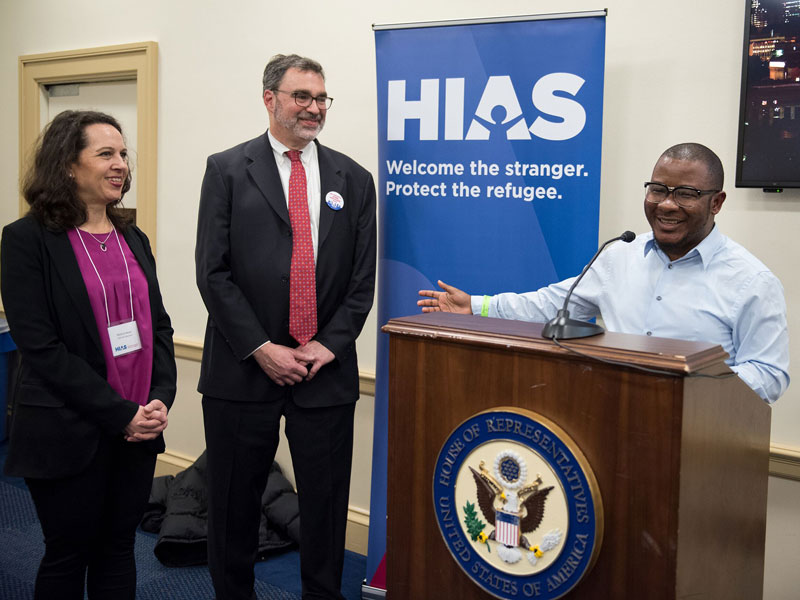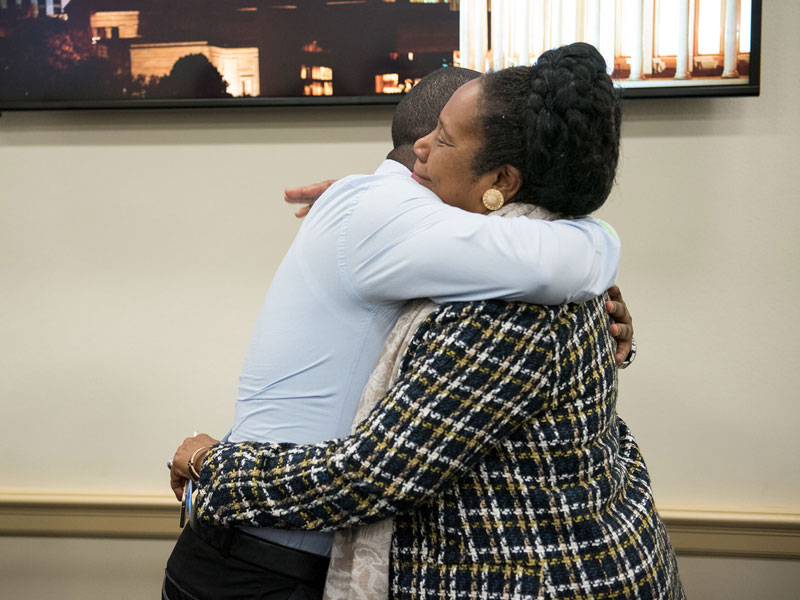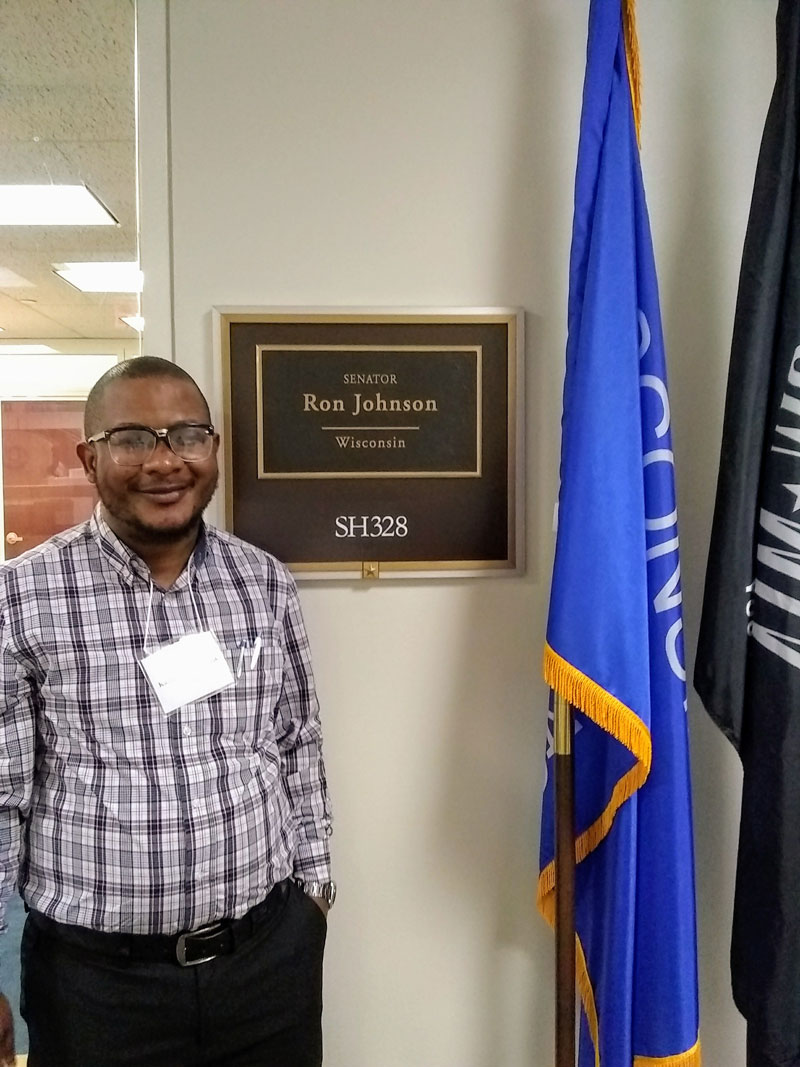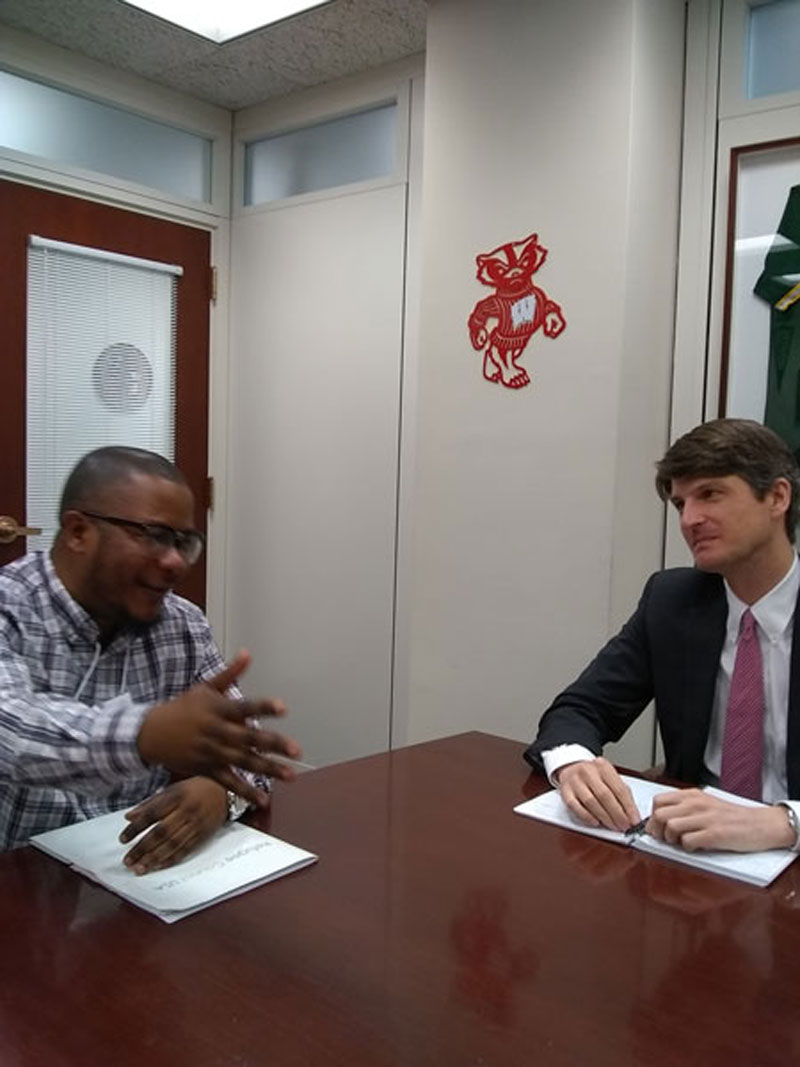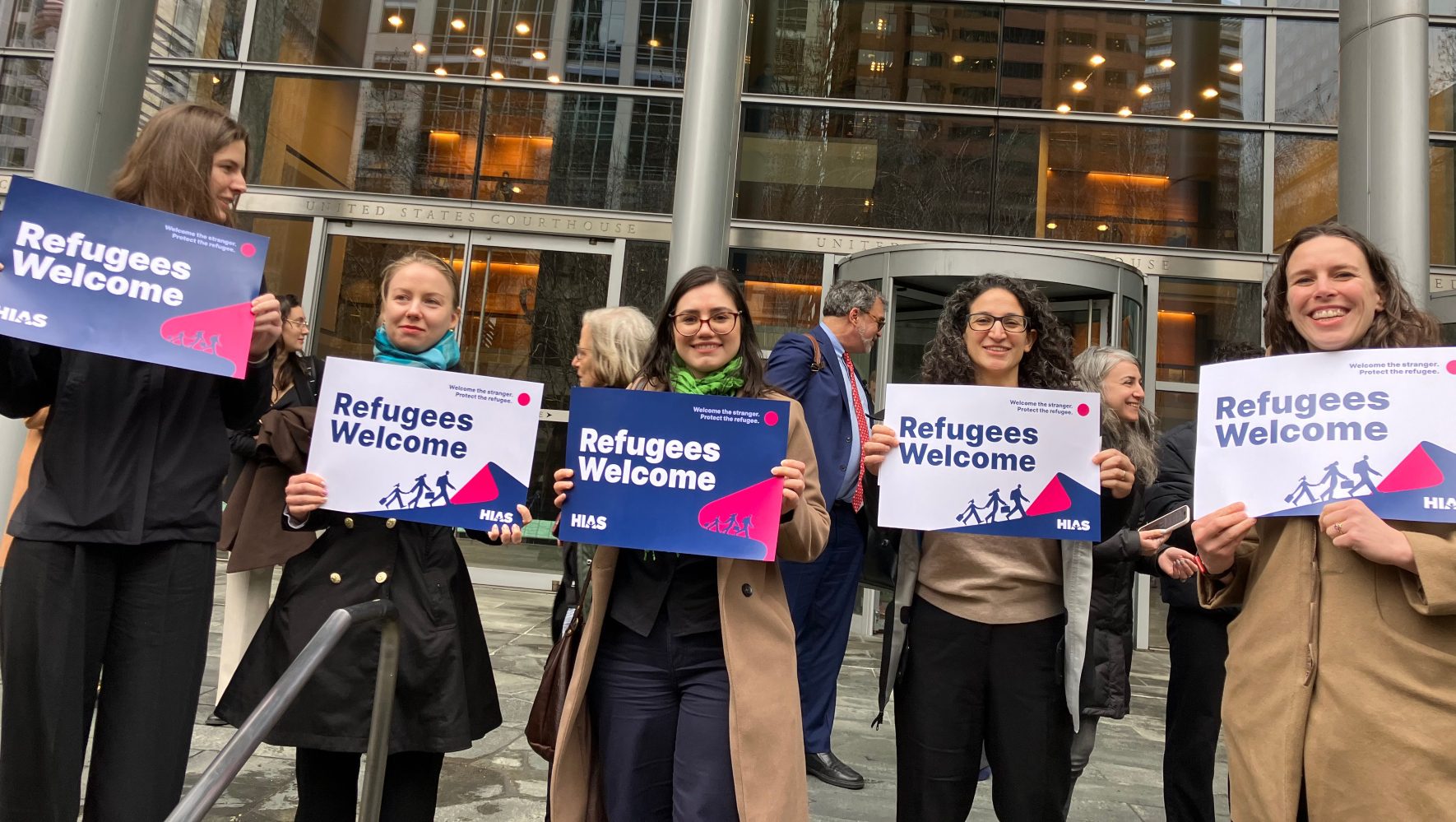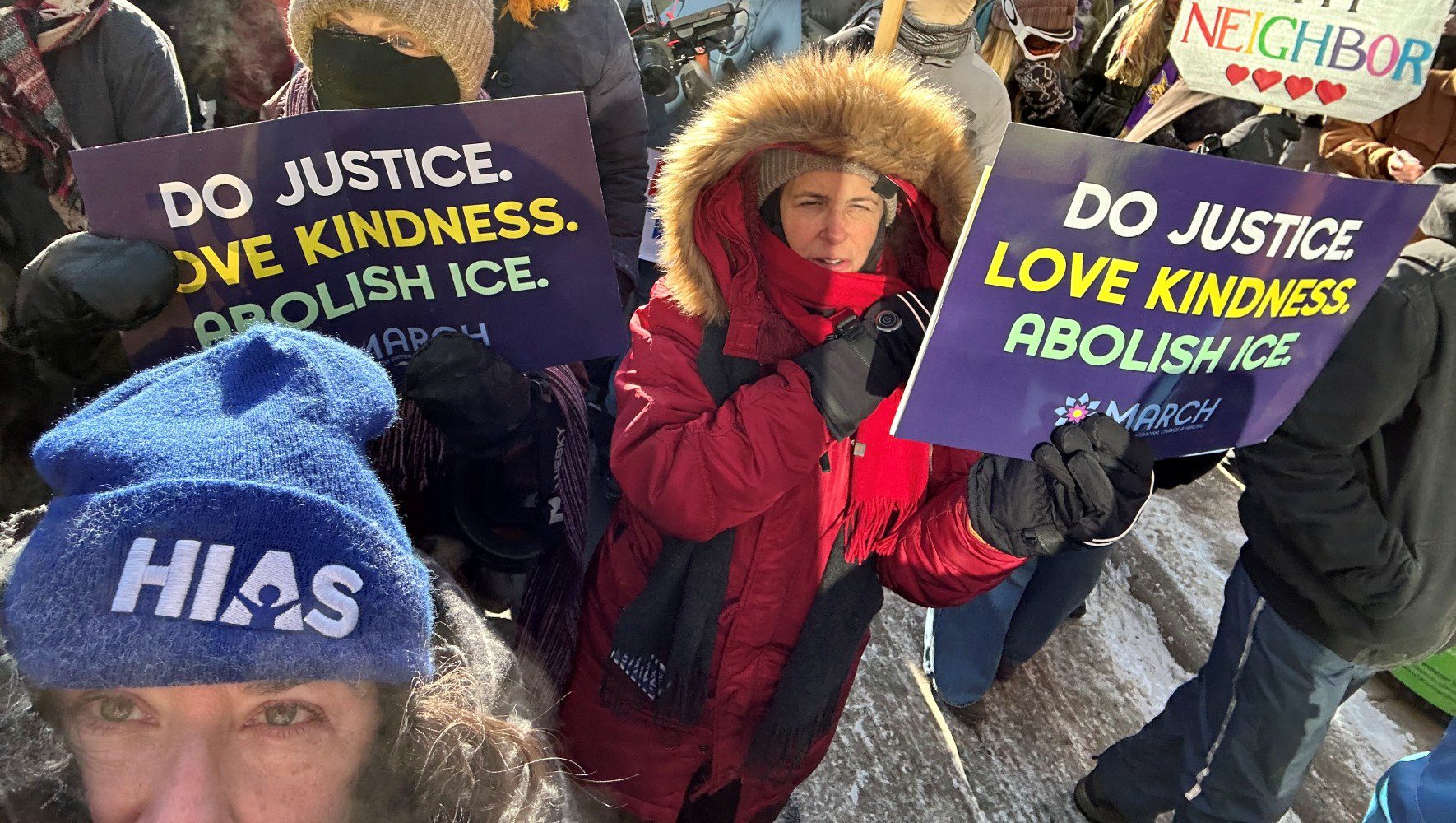Reflections of a Refugee Turned Advocate
By Sharon Samber, HIAS.org
Jun 21, 2019
When I came back from school one day, there was no one home. That was the beginning.
There was no one home for Kassim Hussein Rajab that day because his parents had already left with four of his siblings. Although the streets were quiet in Uvira in the Eastern part of the Democratic Republic of the Congo, 8-year-old Kassim could hear the sound of bombing in the distance, and it was getting closer and closer. He took his young brother Salum, went to his uncle’s house, and then they all ran to the forest. They spent 3 months in the forest sleeping in inhuman conditions. Kassim never saw his parents again.
As if the pain of fleeing your home once in your lifetime is not enough, Kassim had to do it more than five times, as different wars waged near him. The violence continued to find his family–his brother murdered by a rival ethnic group in 2005, his uncle killed by the military in 2008–and Kassim continued to run. Eventually the running was not enough and returning home was too dangerous. Kassim managed to cross the border in 2008 into Uganda and so began his life as a refugee.
Today Kassim tells the story of his personal struggles in steadied, measured tones, with pain in his voice but also with a need to get the story out, not for himself but for others. The others are the people he wants to help, and the stories he tells are to people who might be able to help.
Kassim has already come to the halls of Congress twice to share his stories. He tells staffers of senators and representatives about the dead bodies he saw on the road and people dying of cholera not far from his village with the hope that something positive will come of hearing such horror. There is a connection Kassim must draw between his story and what the lawmakers can then act on; sharing his experiences, he hopes, can lead to policy changes that might stop more stories from having to be told.
After years of living in refugee areas in Kampala, Kassim started to become more involved in refugee issues. He worked as an interpreter for a local refugee assistance organization in Kampala and there recognized the power of stories and first-hand knowledge.
“I used to hear stories,” he recalled. “But I saw it with my own eyes. Children naked. Houses falling apart. No shoes, no blankets, no food for days, no school.” He shook his head. “Beyond poverty.”
Kassim, who was resettled in Wisconsin by HIAS and Jewish Social Services of Madison, says his activism started in 2010 and now “won’t ever get out of my heart.”
“I didn’t know I would be an advocate,” he admitted. “But you have to try to see if you can help people back home.”
Wearing a button down shirt and pressed pants, Kassim was hard at work recently as a participant in Refugee Council USA’s Advocacy Days, when around 70 refugees and hundreds of others convened for refugee rights on Capitol Hill. With RCUSA advocacy training and prior HIAS advocacy training, Kassim was ready to visit the offices of his members of Congress. He told his story and then discussed policy points, such as increasing the number of refugees allowed into the U.S. and the need for increased funding for refugee resettlement programs.
In another meeting that HIAS organized, Kassim bonded with a congressional staffer who had been to Africa, and even to Bukavu, a village where Kassim still has relatives. The meeting was wonderful, Kassim said, and it made him feel good about engaging with government, which can sometimes feel trying.
At a recent HIAS Capitol Hill reception Kassim even stole the spotlight by recounting how he met visiting Texas Congresswoman Sheila Jackson-Lee in a Ugandan refugee area in 2017 and how she told him then not to lose hope. Kassim turned to Jackson-Lee, who had just entered the reception room, and smiling through tears said, “I never lost hope,” as the two embraced.
The personal connections have helped Kassim keep going and stay on message.
“I have to be convincing them, telling them how things can be done better,” he said. “Refugees are human beings. Their suffering is beyond imagination.”
Today Kassim works an Environmental Services Technician at the University of Wisconsin Health University Hospital and is happy to be in Wisconsin (he even has a Wisconsin Badgers sweatshirt.) He’s able to think back to the time before that fateful day when he came home from school and everything changed.
“When I was a kid the Congo was paradise,” he said. “We had life. I had a dream to be someone important in the country.”
Things have moved fast in the six months he has been in the U.S., and while his physical journey might have ended, Kassim knows he has to keep talking.
“You can hide your tears...but we go through a lot,” he said thoughtfully. “Being a refugee isn’t an easy task.”
